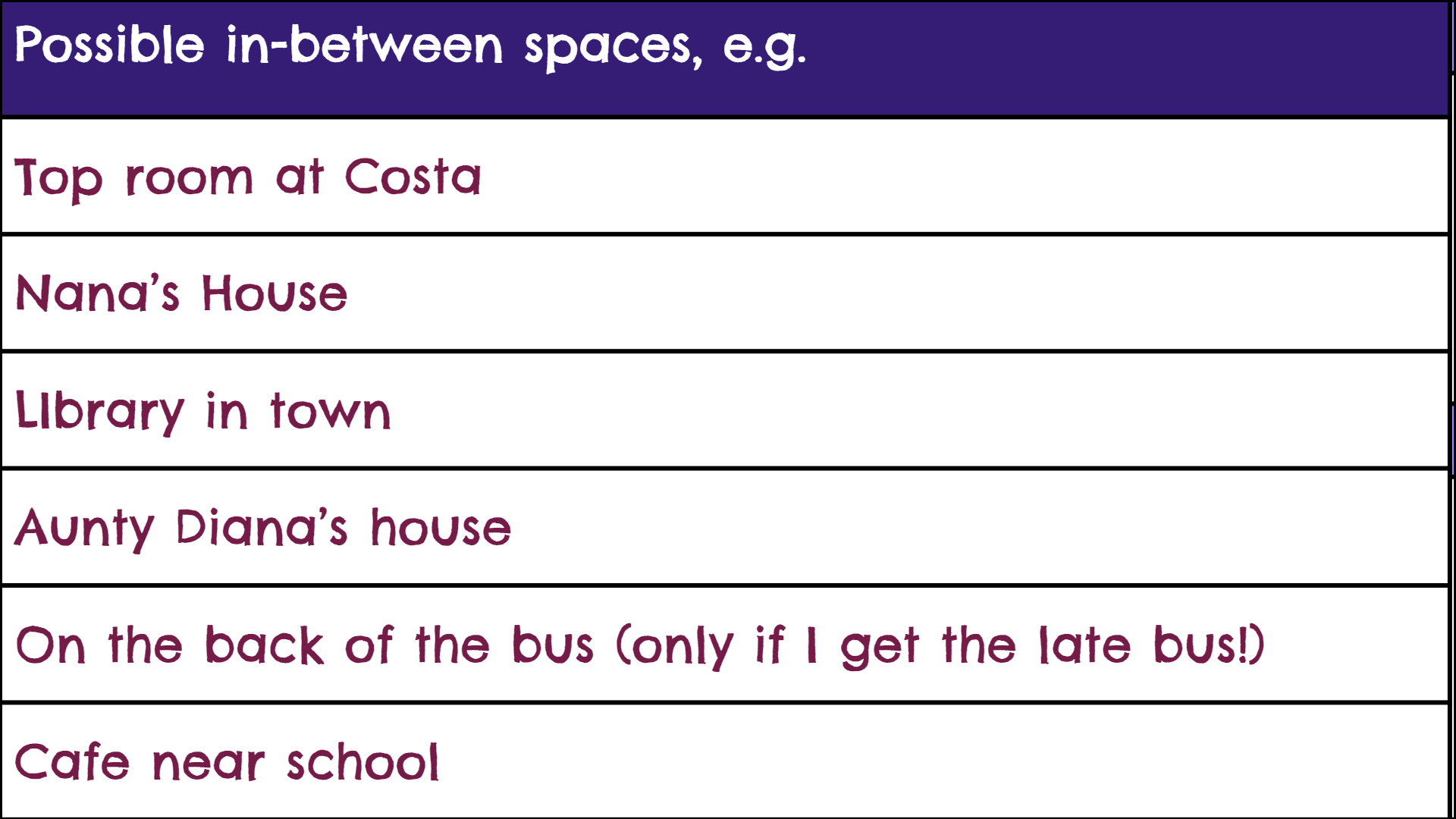High Flow Spaces
PRACTICE
The places we choose to work in often have a big impact on how effective our work is.
Which of these spaces is most like the one you like to work in?
-
Researchers at Reading University, people felt significantly less productive as their work environment:
-
Became more crowded or cramped.
-
As the ambient temperature varied
-
As the quality of light diminished
-
Students often deliberately sit down to work in noisy, distracting locations...often because they actually want to be disturbed!
-
When we have met to discuss their lack of progress, they will often say, “well, I tried to work, but couldn’t concentrate” or “I like working with lots of people around”
BIG IDEA


What are your current work environments like?
What link might they have on your levels of focus, concentration and flow?
Where can you increase your levels of concentration - and get more quality work done in less time.
Join in with our National Poll on student study habits.
Scan the QR code to take part, or go to www.menti.com and enter the code - 53302788
Click here to scroll through the 3 questions

Spend some time considering where your high concentration, high flow spaces might be. Especially consider the following factors....
-
Levels of foreground and background noise
-
Number of people usually there
-
Quality of seating (Tables, Chairs, Desks, etc)
-
Levels of Light
-
Temperature
Think about how you feel in the spaces you occupy, do they encourage you to be calm and focused??
Use the following template to list and categorise all the places you occupy, both in school and at home, as either "High Flow" or "Low Flow"
Next, outline the positive and negative qualities of each space. This will help you identify the important and less important factors for concentration and flow.

Here is an example to get you started

In-Between Spaces
Finally consider your wider environment - public spaces between school and home
Do you have a coffee shop near you that you could work in? or a local library?
Do you have a relative who lives near you where you could work?
Draw up a list of places to investigate. Make sure they are easy to get to so you are more likely to incorporate them into your routine.
Here is an example to get you started...

Over to you now to have a go, you have 5mins to audit your work spaces.

Breaking Digital Habits
As well as our Physical Environment it is equally important to audit our digital environment.
Often it is the habits we have formed around our devices which disrupt our concentration and flow the most.
It is crucial to tackle this if we are going to make our revision effective. To do this we must try and change our habits..
The example shows the 4 stages of habits, and 2 common examples of how digital habits can affect us.
Discuss this,and your own, experience of phone distraction and bad digital habits. Have any of your friends got any good strategies to break their device habits?
Excerpt from "Atomic Habits"
- James Clear
ENVIRONMENT AUDIT
| Physical Environment | Digital Environment |
|---|---|
|
Where do you work at college/home? What distractions are there? What is the space encouraging you to do? What’s your desk like? Your room? |
Where is your phone when you work? How regularly do you check it? What apps are on there? What’s the breakdown on useage? What is the screen encouraging you to do? |
-
Audit your current workspaces – what levels of distraction are there? What distracts you most?
-
Assess your phone screen and phone use. What distractions are there? Which are worst?
-
Design (or discover) a space that would promote higher levels of concentration.
BIG IDEA..
-
Research shows that changing the space in which you study increases your chances of remembering the material you’ve studied.
-
Something about the freshness and variation in space makes the material more easily accessible in your memory.
-
Swap high flow spaces often and you may well remember more of what you have studied
-
Therefore the more spaces you have at your disposal the better you are likely to perform!!


FINAL THOUGHTS
-
A new unfamiliar space often reminds us we’re trying to work differently
-
Even a small change to your room at home works like a visual reminder that your planning on practising harder!
-
Think about moving the position of you bed or your chest of drawers.
-
Challenge yourself to change your digital habits.
-
Try removing any apps that disctract you regularly from your home screen. Then look forward to adding them back when you have finished your revision
-
Finally, check your usage stats and aim to bring them down.

